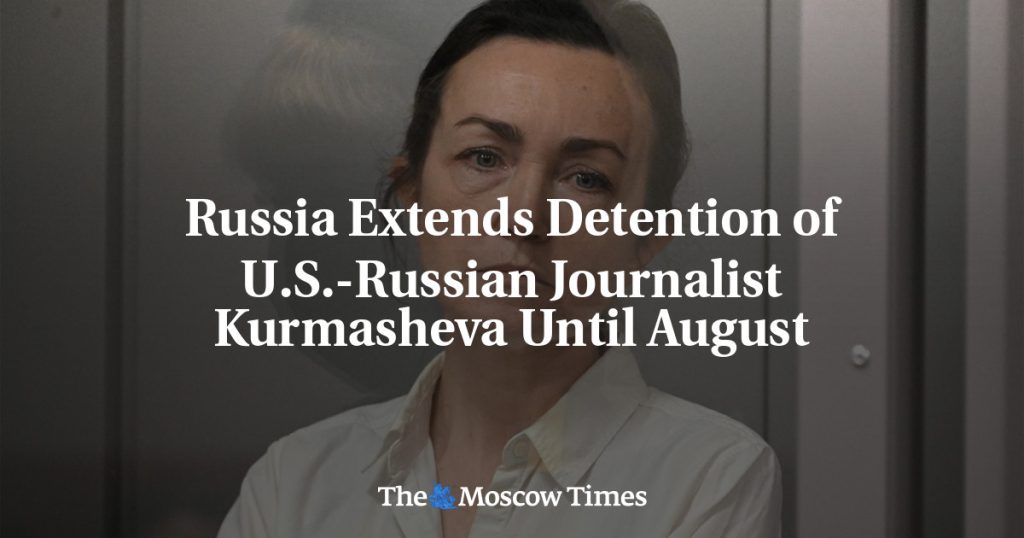A Russian court recently extended the pre-trial detention of U.S.-Russian journalist Alsu Kurmasheva until August. Kurmasheva, who works for Radio Free Europe/Radio Liberty (RFE/RL), was initially arrested for failing to register as a “foreign agent.” Subsequently, she was charged with spreading “false information” under wartime censorship laws introduced following Russia’s invasion of Ukraine in 2022. If convicted, she faces up to 15 years in prison. The court spokeswoman stated that she couldn’t confirm the charges pressed against Kurmasheva as the hearing was closed to the public.
The deputy spokesperson for the U.S. Embassy in Moscow, Daniel Kanigan, expressed that Washington was closely following the outcome of Kurmasheva’s hearing. Kanigan condemned the ongoing persecutions against Kurmasheva, emphasizing that journalism is not a crime. He described Kurmasheva as a dedicated journalist who is detained for her unwavering commitment to reporting the truth to the Russian people, regardless of whether it challenges the Kremlin. Kurmasheva, who resided in Prague with her husband and two children, had her U.S. and Russian passports confiscated last June following a trip to Russia for a family emergency. She is the second U.S. journalist to be arrested in Russia since the invasion of Ukraine.
The U.S. government’s vocalized support for Kurmasheva and condemnation of her persecution underscores the importance of freedom of the press and journalistic integrity. Kanigan’s statements emphasize that all individuals possess a constitutionally guaranteed right to express their opinions and share information freely. The U.S. Embassy’s monitoring of Kurmasheva’s case reflects a dedication to upholding human rights and democratic principles even in the face of increasing media censorship and crackdowns on dissent in Russia. Kanigan’s portrayal of Kurmasheva as a forthright journalist underscores the courage and resilience needed to operate in environments where press freedom is under threat.
Given the closed nature of the hearing surrounding Kurmasheva’s charges, the lack of transparency raises concerns about the fairness of her legal proceedings and the broader state of media freedom in Russia. The withholding of information and restrictions on public access to the case could indicate a pattern of opacity and censorship that compromises the integrity of the judicial process. The extended pre-trial detention of Kurmasheva until August further prolongs her uncertain legal status and perpetuates the chilling effect on journalists and media professionals striving to uphold objective reporting and freedom of expression in Russia.
As the international community continues to monitor Kurmasheva’s case and advocate for her release, the spotlight on her story serves as a reminder of the challenges faced by journalists around the world in upholding press freedom and the truth. Kurmasheva’s plight underscores the critical role of the media in holding governments accountable, amplifying marginalized voices, and providing citizens with accurate information. The global outcry over her detention reflects a shared commitment to defending the principles of free speech and journalistic integrity, even in the face of authoritarian crackdowns and attempts to silence dissenting voices.















